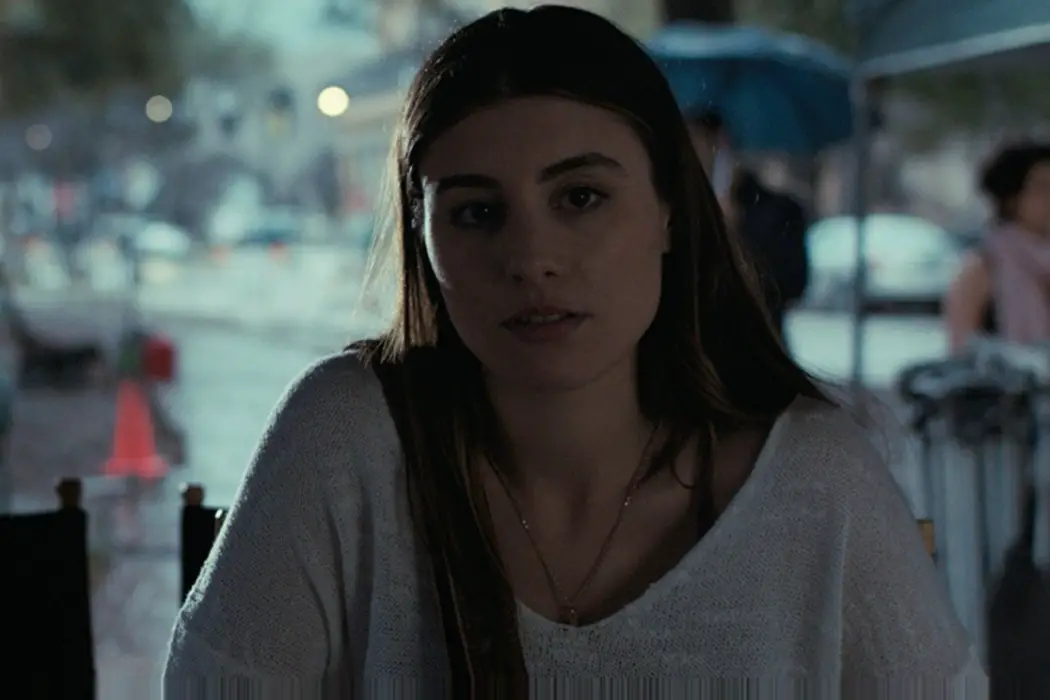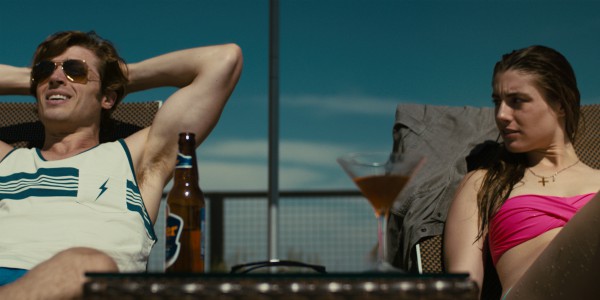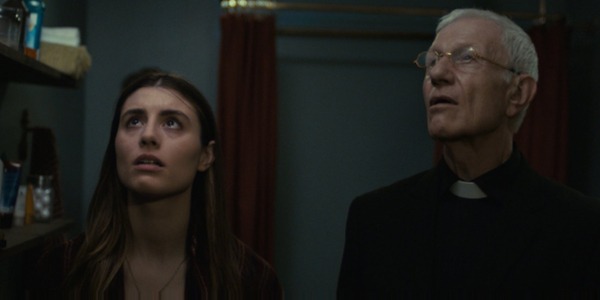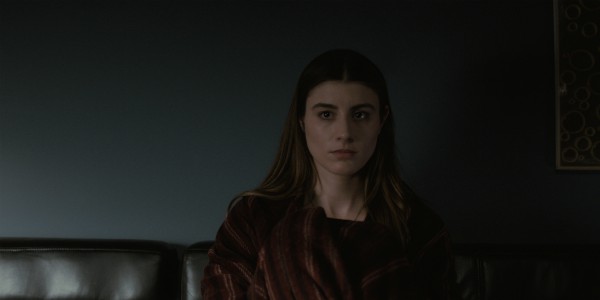DESOLATION: Combining Hollywood & Horror With Surprising Results

Amanda Mazzillo is a writer with an MFA in Dramatic…
Desolation, directed by David Moscow and written by Craig Walendziak and Matthew McCarty, follows Katie (Dominik García-Lorido), a young woman working in a hotel in Elmira, New York, until Jay (Brock Kelly), a Hollywood star, comes along and asks her to come to Los Angeles with him, after spending a few days together. She quickly goes along with his plan, leaving behind her best friend, Debbie (Ninja N. Devoe).
Desolation follows a typical narrative of a girl getting swept up in a life she never expected, but even from its earliest scenes, threads of the danger to come are peppered throughout their brief courtship. Desolation established an interesting mystery by starting out with a scene filled with the music and laughter of a typical haunting horror film, as a woman lights herself on fire. Going from this into Katie’s courtship helps establish a healthy amount of unease in the audience when we are introduced to characters breaking the stasis Katie and Debbie have created in their shared apartment and work schedule.
Twisting the Typical Narrative
When Katie first moves into the apartment with Jay, the film establishes the darkness of this locale through various traditional horror elements. Jay’s apartment door is not numbered, while every other apartment is given a random collection of numbers with no reasoning behind them.
The building is said to have a history of suicides. One of their neighbors is a priest, Father Bill, portrayed by Raymond J. Barry. All these elements work together to get the audience ready for a typical story of a supernatural presence pushing the main characters along.

Walendziak and McCarty worked well at twisting and turning the film in surprising ways without making the change in direction seem unreasonable or ridiculous. Everything is explained with the right amount of reasoning and connections to its center as a horror film about life in Hollywood.
This is one of the few films where I thoroughly enjoyed the “this is how we did it” ending, because I was invested, and I didn’t want it to be some quick and easy supernatural reasoning behind all the action of the film.
Voyeurism and Hollywood
In addition to twisting the narrative, Desolation did a wonderful job of twisting expectations of films based around cameras. I would not call this film found footage, but in large parts of the film, we see the action through various camera lenses set up around the apartment building. When this happens, the frame is transformed into what each specific camera lens picks up.

Within this element of the film, information is presented through text on screen, letting the audience in on some of the plot points which are to come later on in the film. I thought this was an interesting way to make a film based around someone being filmed, instead of going the handheld camera direction.
The focus on voyeurism in Desolation reminded me of Paul Bartel’s short film, The Secret Cinema (1968). Taking a similar idea as Bartel’s film focused on filming an unwitting victim, and creating a darker secret was an interesting idea. The combination of surreal comedy and the darkness of voyeurism in The Secret Cinema is more interesting, but I appreciated what Desolation does by manipulating this already twisted idea into something unique.
This idea of voyeurism fits perfectly for the horror genre, as well as for a film about the dangers for a young woman in Hollywood. Showing the haunting underbelly of Hollywood through a horror lens feels extremely fitting in our current environment.
Fighting for Choice
I thought this film was interesting in the villains being people with closed minded views, and the main character being someone fighting for their survival against people who assume she will automatically fail simply because she has mental issues and past experiences, which align with the fate they are deciding for her.

Having her fight back using everything they placed in front of her, hoping she’d fall back on the darkness of her past was an especially strong aspect of the film. Just because she had these thoughts and feelings in the past does not mean she will automatically give up because some controlling men think she will.
I am trying to not give too much away, because I felt one of the strongest aspects of this film was how often it kept me guessing. Even reading a description before watching, I did not know fully what I was getting into, and I think that made the film as strong as it is.
Conclusion: Desolation
Desolation is a unique take on a more traditional horror film with strong performances, especially the central performance from Dominik García-Lorido. The film managed to surprise me, and had me rooting for its main character as she fought her way through the expectations put upon her.
Desolation will be released January 26th in New York and Los Angeles. It will be available April 28th through VOD.
Does content like this matter to you?
Become a Member and support film journalism. Unlock access to all of Film Inquiry`s great articles. Join a community of like-minded readers who are passionate about cinema - get access to our private members Network, give back to independent filmmakers, and more.
Amanda Mazzillo is a writer with an MFA in Dramatic Writing from SCAD and a BA in Writing & Linguistics and Film Studies minor from Georgia Southern University. She enjoys writing comedy and exploring all forms of media. Her Twitter name is a bad pun: @mazzillofirefox













